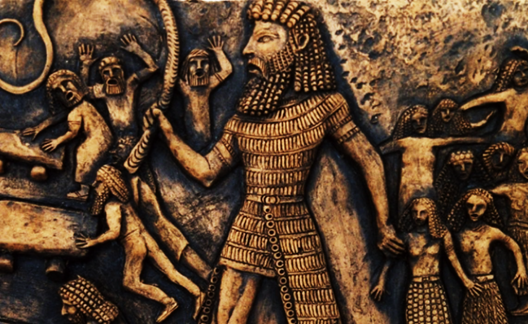Make Sure You Understand the Past
During the journey down the yellow brick road of my life, I have called many places my home. However, I have spent more years in a small town called Winfield than anywhere else. It has a population of nearly 3,000. It is a nice, tiny town amid the cornfields of NW Indiana. Downtown has two drug stores, three gas stations, a grocery store, a dry cleaner, several eateries, and a dentist and eye doctor.
It also has a tire and auto shop where I go for my car’s oil changes. Inside the waiting room are a series of old photos and brief notes. I discovered that Winfield was named after General Winfield Scott. I knew little about Scott other than that he was an American army officer born in Virginia soon after the American Revolution and died a year after the end of the Civil War.
Aside from that, I knew nothing more about Scott. I have wondered why the founding fathers used his first name when they incorporated the town in 1991. We honored Gen. George Washington with a city named after his last name. We honored Gen. Marie-Joseph Paul Yves Roch Gilbert du Motier de La Fayette, Marquis de Lafayette by naming many cities in Lafayette’s honor. Lafayette assisted Washington during the American Revolution. I don’t know why they used Scott’s first.
Nevertheless, that is the backstory to this article. As I address the issue and learn about Gen. Winfield Scott, we must remember what George Santayana wrote, “Those who cannot remember the past are condemned to repeat it.”
Scott was born in Virginia, grew up, became an officer in the US Army for a half-century, and served under fourteen presidents. He is most remembered for being the commander of the American forces during the Mexican War.

This photo was taken close to his retirement, and it looks like he had eaten something upsetting his stomach. Whether or not he had acid indigestion, he was concerned about an attack on Washington, DC, after the election of Abraham Lincoln and several months prior to the beginning of the Civil War. Scott was in command of the troops when they put down a pro-slavery rebellion that would have stopped the certification of Abraham Lincoln as our next president. There was a rampant fear that an insurrection would occur. Scott was prepared to protect the Capitol. He was able to quell that protest.
Another group was prevented from entering the Capitol for the ceremony of the confirmation that Lincoln was the new president. Two months later, the Confederates fired upon Fort Sumter, thus beginning the Civil War.
The parallel between the pro-slavery groups and the rioters on January 6, 2021, is obvious. President Trump lost the election and didn’t want to yield the office to Joe Biden. Trump's cronies did storm the Capitol because no one called for additional police or National Guard until the rioters got into the Capitol.
Why didn’t Trump try to stop the coup? He didn’t want to transfer power to Biden, who won the election. In both cases, in 1861 and 2021, the insurgencies weren’t successful.
The North won the war but lost the peace to the South. Essentially, we are reliving the run-up to the first Civil War. The Civil Rights movement in the 50s and 60s moved equality closer for blacks. Some Americans in the government, from some Presidents, Members of Congress, and Supreme Court Justices, along with some Americans, wanted to go back to the good old days of slavery days that were gone with the wind.
Margaret Mitchell’s novel Gone with the Wind in 1936 and the film in 1939 dealt with those good old days of slavery. Slavery was gone, but racism and discrimination are still here. It is called white supremacy and white nationalism. President Johnson’s legislation addressing racism attempted to give all Americans equal rights. However, the Supreme Court gutted much of Johnson’s Civil Rights Act of 1964 and the Voting Rights Act of 1965. Some Americans, whether in elective office or not, wish to return to a time before the Civil War.
















